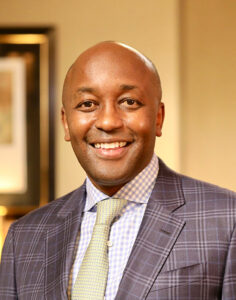By Peg Lopata, Contributing writer

Photo/Submitted
REGION – Losing one’s eyesight was once not uncommon for elders, but luckily things have changed. For example, the science has advanced so we now know that boosting your diet with such fruits and vegetables as kale, broccoli, peaches, raspberries and mangoes could help keep eyes healthy.
“It’s simply not the case that vision loss is inevitable as you age,” explained Sidney Gicheru, MD, and clinical spokesperson of the American Academy of Ophthalmology.
Get thee to the eye doctor
“Don’t wait until you are having a problem in your vision, however,” Gicheru advised. “Most leading causes of blindness can be treated, if detected early enough.”
But what’s a problem? As we age it’s normal, though annoying, to have difficulty seeing at night, being more sensitive to glare or to have trouble reading fine print. In addition, as we age, we may notice our eyes feel drier, or objects blend into backgrounds, like milk in a white cup.
These changes can be addressed, but don’t require getting to the eye doctor tomorrow. Other changes need more immediate attention, such as sudden loss of vision or blurriness, pain in the eye, or a sudden increase in flashes or spots or floaters.
The importance of exams
The Academy recommends all healthy adults get a comprehensive eye exam with an ophthalmologist by age forty. After this first exam, your ophthalmologist will recommend how frequently you should have follow-up exams. Yearly or every other year visits for those aged sixty and older is highly recommended, whether you wear glasses or not.
These eye exams not only check for vision acuity, they can also sometimes tell if you have high blood pressure, high cholesterol or vitamin deficiencies. There are diseases, such as lupus and diabetes, which can be detected before you get any symptoms by an ophthalmologist examining your eyes.
Thorough eye exams can also spot if you have macular degeneration, a condition that results in distortion or loss of central vision, or glaucoma, which causes a gradual loss of sight.
Looking forward
There have been advancements in eye exams as well.
Overall, there are not just better diagnostic tools, there have been great advancements in addressing eye problems.
Said Gicheru, “Some have said we are in the golden era of technologies to fix eye health problems.”
One example is cataracts, which is the leading cause of reversible visual loss in patients over fifty, according to Gicheru.
Cataracts cause clouding of the lens of the eye. But this needn’t happen to you. To address this problem, cataracts are removed. Today cataract surgery can be done with smaller incisions, the use of lasers, and lens implants that can correct vision for both far and near.
For other eye diseases, such as diabetic retinopathy, which can cause vision loss and blindness in people who have diabetes, and macular degeneration, there are new technologies available now and others in the pipeline.
Gene therapy as a treatment option
One exciting development in that pipeline is gene therapy technology.
“In 2017, the Food and Drug Administration approved Luxturna, a gene therapy for a rare condition that affects the retina and can cause hereditary blindness,” Gicheru explained. Though as a rare disease, this doesn’t affect many, it could help others down the road. In developments in science, one advance can lead to another. “It is hoped that this gene therapy will continue to expand to other diseases of the retina, optic nerve and other parts of the eye,” said Gicheru.
There are advances coming for more use of lasers, implantable devices and more.
As Gicheru concluded, “This is a very exciting time in ophthalmology.”
Can’t afford an eye exam? Eligible seniors can receive a free exam from an EyeCare America volunteer ophthalmologist. To see if you qualify go to: www.eyecareamerica.org.
Want more information about eye health? Go to www.aao.org/eye-health/tips-prevention/seniors.
RELATED CONTENT:
Hearing loss intervention can be life changing for older adults (fiftyplusadvocate.com)
Pets have the power to improve our health and well-being (fiftyplusadvocate.com)
For healthy feet, take care of your overall well-being (fiftyplusadvocate.com)












